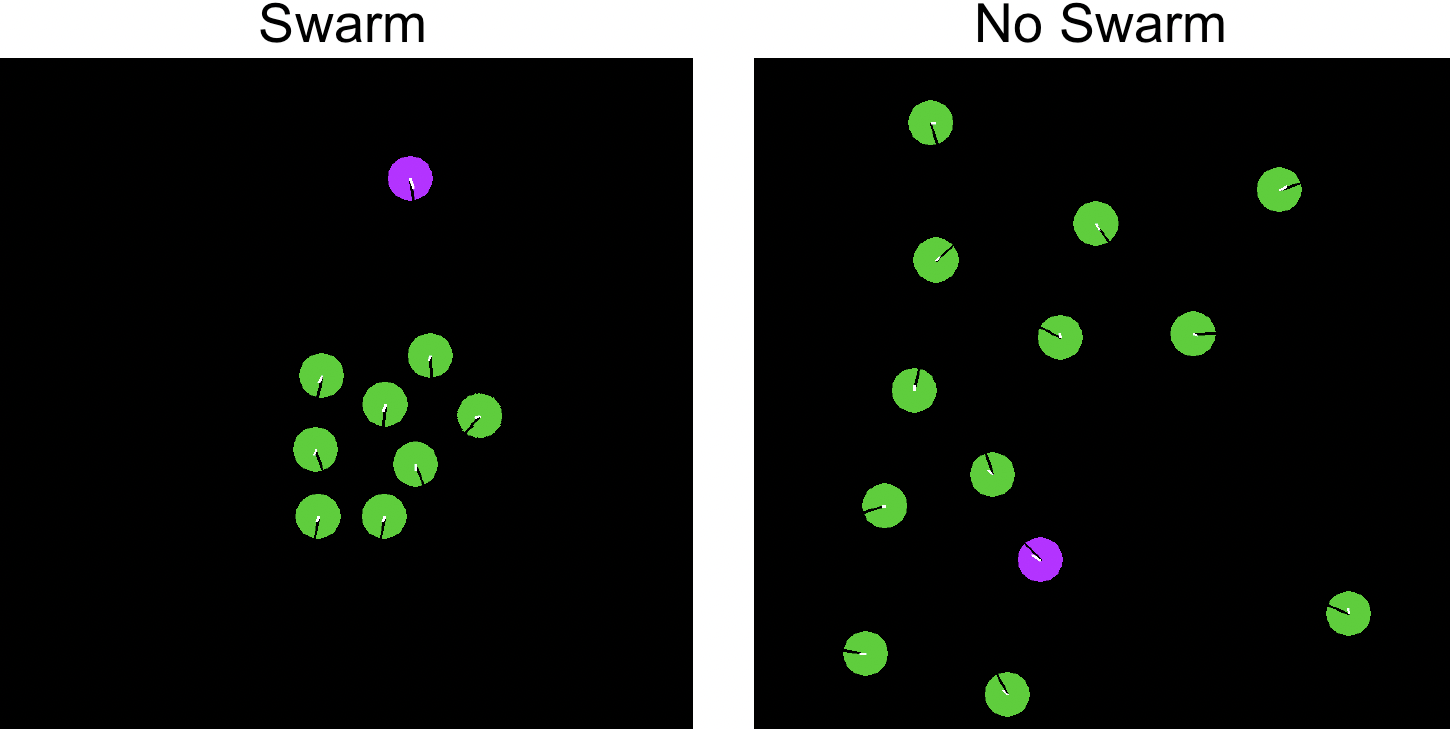In nature, flocking or swarm behavior is observed in many species as it has beneficial properties like reducing the probability of being caught by a predator. In this paper, we propose SELFish (Swarm Emergent Learning Fish), an approach with multiple autonomous agents which can freely move in a continuous space with the objective to avoid being caught by a present predator. The predator has the property that it might get distracted by multiple possible preys in its vicinity. We show that this property in interaction with self-interested agents which are trained with reinforcement learning solely to survive as long as possible leads to flocking behavior similar to Boids, a common simulation for flocking behavior. Furthermore we present interesting insights into the swarming behavior and into the process of agents being caught in our modeled environment.
@inproceedings{ hahnALIFE19,
author = "Carsten Hahn and Thomy Phan and Thomas Gabor and Lenz Belzner and Claudia Linnhoff-Popien",
title = "Emergent Escape-based Flocking Behavior Using Multi-Agent Reinforcement Learning",
year = "2019",
abstract = "In nature, flocking or swarm behavior is observed in many species as it has beneficial properties like reducing the probability of being caught by a predator. In this paper, we propose SELFish (Swarm Emergent Learning Fish), an approach with multiple autonomous agents which can freely move in a continuous space with the objective to avoid being caught by a present predator. The predator has the property that it might get distracted by multiple possible preys in its vicinity. We show that this property in interaction with self-interested agents which are trained with reinforcement learning solely to survive as long as possible leads to flocking behavior similar to Boids, a common simulation for flocking behavior. Furthermore we present interesting insights into the swarming behavior and into the process of agents being caught in our modeled environment.",
url = "https://direct.mit.edu/isal/proceedings/isal2019/598/99238",
eprint = "https://direct.mit.edu/isal/proceedings-pdf/isal2019/31/598/1903589/isal a 00226.pdf",
publisher = "MIT Press Direct",
booktitle = "Conference on Artificial Life",
pages = "598--605",
doi = "https://doi.org/10.1162/isal_a_00226"
}
Related Articles
- Zorn et al., “Social Neural Network Soups with Surprise Minimization”, ALIFE 2023
- F. Ritz et al., “A Sustainable Ecosystem through Emergent Cooperation in Multi-Agent Reinforcement Learning”, ALIFE 2021
- F. Ritz et al., “Towards Ecosystem Management from Greedy Reinforcement Learning in a Predator-Prey Setting”, ALIFE 2020
- C. Hahn et al., “Foraging Swarms using Multi-Agent Reinforcement Learning”, ALIFE 2020
- T. Phan, “Emergence and Resilience in Multi-Agent Reinforcement Learning”, PhD Thesis
Relevant Research Areas

